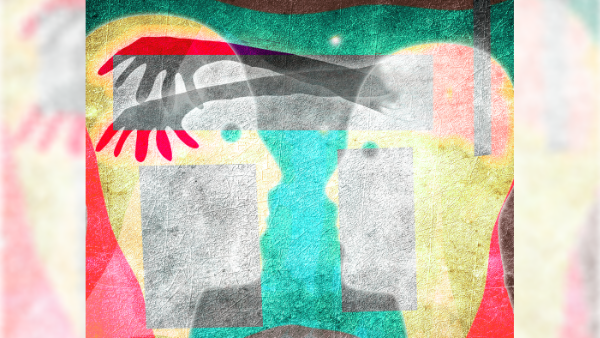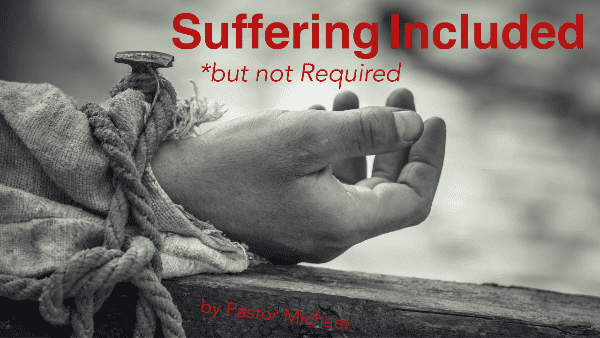Summer’s heat waves rise visibly from the super-heated asphalt, and I find myself staring out my window, watching the pigeons. Some are daredevils, cutting drop-ins on those blistering whitecaps like a Kelly Slater. Others lazily swirl about, drifting at the calmer tops of the air currents, no schedule, no politics, no shredding.
Watching their antics, it’s apparent pigeons do a lot of things just for the fun of doing them. It’s thought-provoking realizing that this ubiquitous bird many call a pest is sentient enough to sense pleasure. There is no reason for these pigeons to be ripping gnarly curls other than the sheer joy of the experience. By the way, we live in a 23-story building. Some of their dives from the top floor are breathtaking.

Still, a pigeon doesn’t think about its purpose in life and whether or not its parents are proud of it for becoming a pro surfer or discovering a cure for an illness. It doesn’t worry about trade or commerce or war. It’s just a pigeon doing pigeon things. They may be sentient — able to experience emotions — but they are not sapient, able to broadly understand the intricacies of their actions as they relate to the larger world. There is no self-analysis happening in pigeon consciousness (and yes, we can test for this sort of thing now).
The problem is that, with the advent of Artificial Intelligence, the word “sentience” has taken on a deeper meaning more closely associated with “sapience.” Sapience describes our ability to use experience, knowledge, and insight to determine a sense of self and to question our place in the cosmos. The word derives from the same Greek root, Sophia, used to describe the divine feminine, Wisdom, in the Bible. Sapient beings, like humans, can explore the meaning of external and internal existence.
Humans wonder about consciousness. We overanalyze our actions and motives rather than just experiencing emotions. Humans don’t merely feel joy and pain; we internalize emotions in every fiber of our being. We wonder if a superbeing is “doing” things to us either as a corrective or out of pure folly.
Pigeons, while they most assuredly feel pain and pleasure, don’t consider their agony as some sort of cosmic punishment or slight. They don’t, as far as we know, think about their actions at all, much less how a pigeon god might judge them.
Humans, though, not only wonder about all these things and more but also are existentially affected by our mental meanderings because our internal sense of self directly translates to the type of civilization we create for ourselves and others.

The ability of humans to analyze our environment and deduce how it works is a mixed bag because, while the gift to explore our inner and outer realities allows us to create complex societies, it also forces us to recognize the injurious inequities our institutions cause, not only to other humans, but also to the rest of the animal, plant, and even mineral kingdoms.
Being human assures a certain amount of agony in our lives, much of it from our subliminal demons.
Suffering is one of the human experiences we all share, regardless of gender, wealth, faith, ethnicity, language, or social position. And it’s such a universal human experience that sometimes it seems we were designed to suffer, an idea that causes enormous societal damage.
Whether we believe in a classical, anthropomorphic deity or a more contemporary, conscious energy, Great Spirit, or Multidimensional being, one of the many difficulties facing people who believe in “God” is the authentic existence of suffering. In those elbow-patched, bourbon-drinking halls of academia, it’s a question of theodicy, which means “justifying God.” Why would we feel the need to justify God?
Have you looked around the world lately?
There are two orthodox Christian answers to the question of why human suffering exists. Both are horrifically abusive flights of imagination invented thousands of years ago by people with zero understanding of the innermost workings of the human mind. Not that I am claiming to be a neuroscientist. But at least I know what neuroscience is, and I understand it well enough to apply it to our thoughts about God and reality. St. Augustine did not, and he’s responsible for our first incorrect answer to “Why does the world suffer?”

Augustine (shown here ripping the heart out of religion) sees Eve and Adam expelled from the garden as the beginning of human suffering. But that’s a horribly incorrect rendering of this ancient Semitic myth. Without knowing the way our brain processes — and creates — information, Augustine said we suffer and ultimately die because Adam and Eve disobeyed God. They ate from the Tree of the Knowledge of Good and Evil, which God strictly forbade.
The name of the tree is a dead giveaway, and after they eat the forbidden fruit, Eve and Adam see—and will soon experience—“good” and “evil,” something they were sheltered from before partaking of the reality- and world-view changing fruit.
The Garden of Eden parable is a caution against dualism and one of the first indications that our ancestors were already considering that seeing everything in black and white is one of the significant contributors to our existential and material angst.
Augustine completely missed the non-dual point of the Eden parable and instead adapted the concept of original sin, a universal problem only the church could solve by quite wrongly insisting the very natural death of the flesh is, in fact, unnatural and a cosmic punishment from a petty and destructive superbeing.
We are sinners is a poor explanation for the suffering in the world. Blaming our pain on our own disobedience is victim-shaming of the worst sort, like telling a woman whose husband has beat her for years that she must be doing something to cause his abuse! It’s outrageous and inappropriate and that it has been Church dogma for thousands of years is an abomination.
Yet, as devastating as Augustine’s original sin trope has been, the second traditional answer to our suffering dilemma is worse: We suffer in order to know the depths of God’s goodness.
Oy vey, as Jesus used to say.

If we didn’t know suffering, we would never know just how much God truly loves us is like saying we wouldn’t know what “blue” is if we didn’t also have “red.” Thinking we must have “bad” to know “good” betrays our ignorance regarding the cosmic scale of morality and ethics. Thinking that suffering is necessary to know “not suffering” or, worse, that existential agony is required to have a God experience also pulls back the curtain on just how pervasive our dualistic mindset has become — that thing God tried to help us avoid in Eden by warning us about the Tree of the Knowledge of Duality.
The idea that we can’t be happy unless we first know unhappy? That makes me sad and unsad.
Happiness and suffering are independent states of being. Their only relationship is the meaning we give the relationship. To transcend the aphorisms of religion offering solace without substance and to deal with life’s inevitable tragedies in a healthier way, we need a new mindset. We need to move far beyond the tired tropes of original sin and “bad exists so we will recognize good” by instead doing something Paul suggests: put on the “mind of Christ.”
1 Corinthians 2:13–16 (CEB)
These are the things we are talking about — not with words taught by human wisdom but with words taught by the Spirit — we are interpreting spiritual things to spiritual people. But people who are unspiritual don’t accept the things from God’s Spirit. They are foolishness to them and can’t be understood, because they can only be comprehended in a spiritual way. Spiritual people comprehend everything, but they themselves aren’t understood by anyone. Who has known the mind of the Lord, who will advise him? But we have the mind of Christ.
To “put on the mind of Christ” is to awaken to a new awareness of reality that no longer requires suffering for any reason, even as we recognize suffering as a constitutive aspect of being human.
Paul never denies human pain, physical or existential, but he does urge us to stop fixating on it, and he suggests we do that by “putting on the mind of Christ,” by making ourselves like Jesus, especially our attitudes about God and society. Paul also uses the word Sophia to describe ancient Wisdom, capital ‘W,’ as the mechanism through which “Spiritual people comprehend everything,” a direct rebuttal of the idea we cannot know happiness if we don’t know suffering. Because, Paul correctly argues, happiness, not suffering, is our default state.
Think about happiness as our default state. Doesn’t scripture indicate Adam and Eve were happy before they ate the “Knowledge of Duality” fruit? Otherwise, are we to expect pre-duality Adam and Eve lived entirely without emotions, that in the garden they weren’t even blessed with the same basic sentience we now afford the entire animal kingdom, including my pigeon friends?
Of course not!
The Bible and even more ancient holy texts clearly describe the Garden of Eden, sometimes longingly, as paradise, a place of pure bliss and understanding where we walked hand-in-hand with God. Eden is a parable of Oneness, that great mystical goal where we experience all the wonder of the universe pulsing through every atomic soul-cell of our celestial being.
There is a path back to Eden, back to blissful co-existence in the unifying Spirit of God, and the beauty of it is we don’t have to travel anywhere or search the end of the earth to find some mythical Shangri-La. Paradise is not lost. It’s within and around us the way it’s always been, just as Jesus and mystics before and after him describe. God didn’t kick us out of Eden; we banished ourselves by feasting on duality. And we’ve been in our self-imposed exile for so long we’ve forgotten we’re in exile at all.
Neither Jesus nor Paul asks us to deny human pain and suffering, especially since it is the suffering we cause each other with which Jesus is primarily concerned. He knows, better than most, that suffering is part of life. But Jesus is clear that our woes are neither punishment from God nor the result of the sins of our parents — including Eve and Adam. And he lays out a plan for daily prayer and practice designed to help us move away from the dualistic worldview at the root of human suffering, to the realization of nondual Oneness with the Conscious Universe, with God, the meta-being of all that exists.
With each of those enlightening moments, we step away from the self-created prison of human suffering and toward the mind of Christ, where we discover Eden has been here all along, just waiting for us to open our minds and return.
Question: What does it mean to respond to suffering by putting on the “mind of Christ?”


